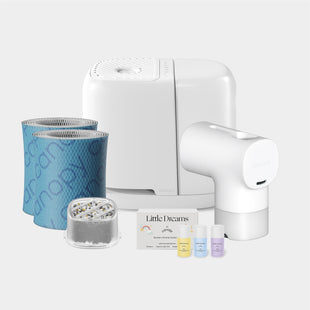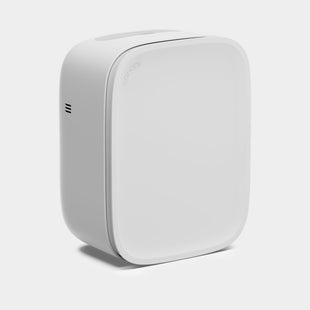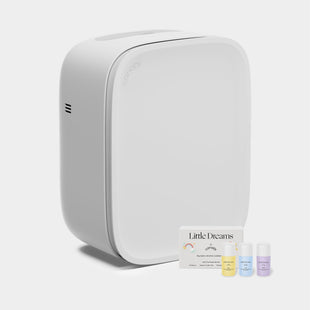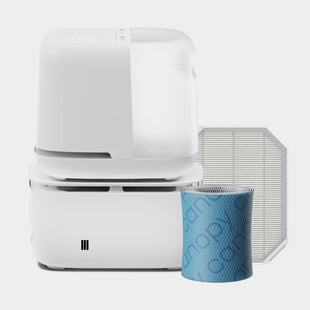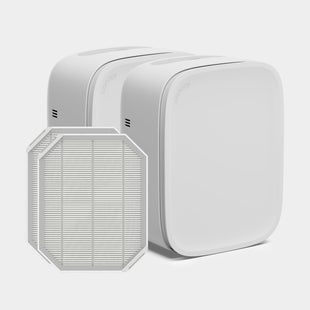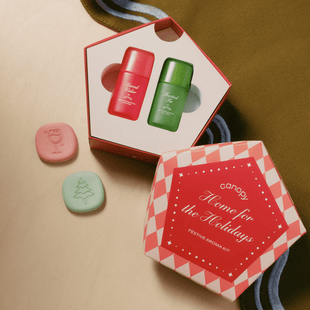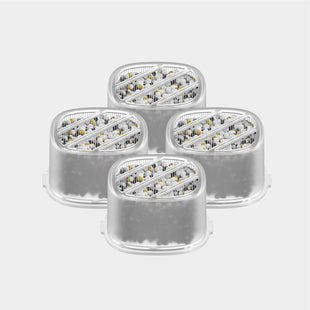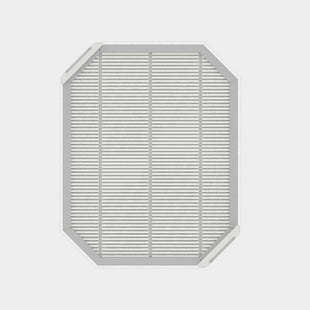This content has been reviewed and updated on May 16, 2023.
If you’re one of the millions of people living with allergies, you’ve probably tried all kinds of treatments and tricks to find relief from your symptoms. Given that the Asthma and Allergy Foundation of America (AAFA) reports that allergies are the sixth leading cause of chronic illness in the U.S., it seems like everyone has advice and home remedies. But these solutions range from helpful to pointless.
Where does using a humidifier fall on that spectrum? Does a humidifier help with allergies? The short answer is that yes, a clean humidifier with anti-mold technology can help alleviate your discomfort. This guide covers the ins and outs of using a humidifier for allergy relief.
What Are Allergies?
Allergies occur when your immune system reacts to a foreign substance, or allergen, that it sees as a threat, even though it’s harmless. Whether you inhale, eat, touch, or receive the substance from an injection, your immune system reacts by producing histamines to help eliminate allergens and protect you from the perceived threat.
The most common allergy triggers are trees, grass and weed pollen, mold, dust, and animal dander. The symptoms can range vastly from a scratchy throat, itchy eyes, and sinus swelling and congestion to hives, asthma attacks, and low blood pressure, depending on your sensitivity to the allergen. And while there are many known causes for allergies, medical researchers have yet to find a cure or a way to prevent them.
Allergies can be managed with the right treatment and preventative measures, though. The best way to prevent an allergic reaction depends on the type of allergy you have. If you have seasonal allergies to outdoor contaminants like pollen and mold spores, staying inside with the windows closed when the pollen counts are high can help prevent discomfort.
Staying indoors can protect you from outdoor allergens, but it can also present another issue: Dry air. Indoor air, especially when you run the furnace or air conditioner, often contains less humidity than is ideal. This can cause your nasal passages to dry out, making you feel even more irritated and uncomfortable—but a humidifier can moisten the nasal passage to relieve congestion. Many doctors recommend using a humidifier for allergies the same way they recommend it during cold and flu season and to relieve sinus symptoms.
Do Humidifiers Really Help With Allergies?
 Using a humidifier can increase the relative humidity levels inside your home, which can have a soothing effect on irritation in the body. The extra moisture doesn’t completely eliminate your immune response to common allergens or remove those substances from your environment, but it does reduce inflammation in your nasal tissues, so you feel less congested and have less sinus pain.
Using a humidifier can increase the relative humidity levels inside your home, which can have a soothing effect on irritation in the body. The extra moisture doesn’t completely eliminate your immune response to common allergens or remove those substances from your environment, but it does reduce inflammation in your nasal tissues, so you feel less congested and have less sinus pain. Talk to your doctor before you start using a humidifier for allergies, especially if you have asthma or other severe symptoms that may require medical care.
How to Choose the Best Humidifier for Allergies
As you start using your humidifier, remember that the ideal indoor humidity level is between 40% and 50%. Any lower, and the air will be too dry to show any improvements—but excess humidity can increase mold spores and dust mites, worsening allergy symptoms.
The best type of humidifier for allergies is one that provides clean, filtered moisture and helps reduce dust and mold. This is the most effective way to prevent allergic reactions and live comfortably in your space. These are the key features to look for.
Effective and Disposable Filters
Without proper maintenance, most humidifiers will produce allergy triggers, like mold—as well as bacteria and other irritants—and release them into the room in the mist. As you might suspect, this can make your allergies worse, defeating the purpose of using the device.
When shopping for a humidifier, look for one that has a replaceable filter for easy maintenance. Changing the filter frequently ensures it will continue to catch any contaminants present in the water before they reach the air.
No-Mist Technology
Investing in a humidifier that doesn’t produce mist helps prevent the moisture damage that other humidifiers can cause and prevents harmful particles and bacteria from the water from filling the air. Clean, invisible moisture is best for your skin and respiratory health.
Mold-Inhibiting* Design
Mold is a common indoor allergen and concern for many humidifier owners. Traditional humidifiers contain standing water, which creates the perfect breeding ground for mold. Without regular upkeep, that mold can mist into the air, aggravating allergy symptoms. A humidifier with mold-inhibiting* design inside the humidifier is the best choice for reducing your exposure.
Canopy humidifiers check all these boxes for a healthy humidifier, so you can breathe easier knowing they are helping, not hurting, your allergies. You’ll feel more comfortable, hydrated, and refreshed day or night. Our original humidifier is perfect for spaces up to 500 square feet, whether it’s a bedroom, home office, or small apartment. For larger spaces up to 1,000 square feet, count on the Humidifier Plus for your allergy relief needs.
*Mold inhibition limited to device interior. Does not treat air or environment. 3rd party lab-tested with Aspergillus niger (ATCC 6275, 16404).









